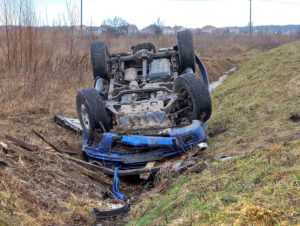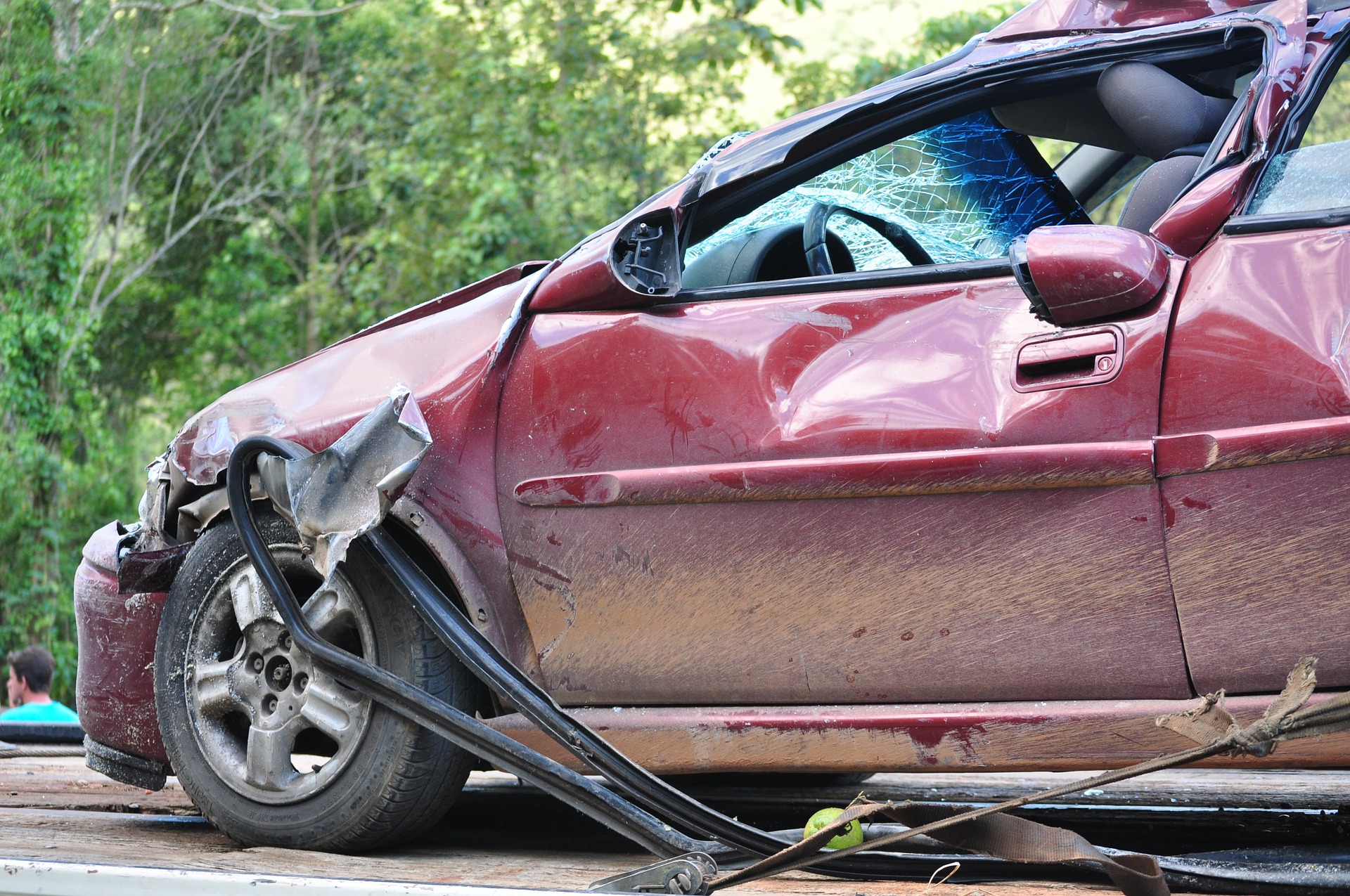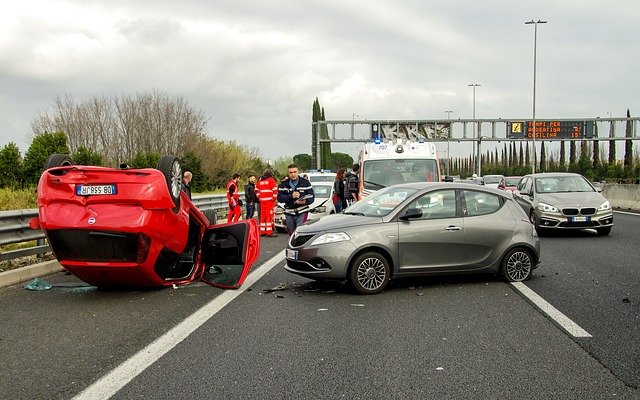Rollover Accidents: Can It Happen to Me?
Posted December 7th, 2018 by Anthony Carbone, PC.
Categories: Auto Accidents.
 With the changing weather, car accidents are occurring more and more often. And one of the deadliest types of crashes is a rollover accident.
With the changing weather, car accidents are occurring more and more often. And one of the deadliest types of crashes is a rollover accident.
According to the National Highway Traffic Safety Administration, nearly 35 percent of all passenger vehicle accidents were the result of a rollover. In 2010 alone, more than 7,600 people had died in rollover crashes. The majorities of the victims (69 percent) were not wearing a seatbelt at the time of the accident.
So what is a rollover accident? And what do you do if it happens to you?
What is a Rollover Accident?
 A rollover accident can occur in one of two ways:
A rollover accident can occur in one of two ways:
- Tripped Rollovers: The majority of crashes are considered tripped rollovers. It happens after a vehicle leaves the roadway and begins to slide sideways. When either the tires dig into the soil or strike an object, such as a guardrail, the tripping force is then applied to the tires. This maneuver causes the vehicle to roll over. A tripped rollover can also occur when a car is driving forward at a high speed when it rides upon an object, such as a curb, causing the vehicle to tip.
- Untripped Rollovers: Less common than a tripped rollover, this type of rollover occurs mostly to top-heavy cars when attempting to avoid a high-speed collision. For example, a heavily loaded truck tries to prevent something on the highway. By turning abruptly to the right, the top-heaviness of the vehicle causes the vehicle to roll.
Causes of a Rollover Accident
 The taller and narrower your vehicle is, the more likely you will be involved in a rollover accident. But what can cause these accidents?
The taller and narrower your vehicle is, the more likely you will be involved in a rollover accident. But what can cause these accidents?
- Speeding: According to the NHTSA, 40 percent of all fatal rollover crashes involve excessive speeds.
- Alcohol: Since alcohol can affect your judgment, you are more likely to lose control of your vehicle.
- Location: Surprisingly, more rollovers occur in rural areas, where there are no barriers and are undivided, unlike a highway.
- Routine Driving: You don’t need to be doing something extraordinary — NHTSA states that 90 percent of all fatal, single-vehicle crashes involved routine driving maneuvers, such as going around a curve.
What to Do if Your Car Rolls Over
 Although no one can truly prepare for any car accident, there are ways to protect yourself if you’re involved in a rollover.
Although no one can truly prepare for any car accident, there are ways to protect yourself if you’re involved in a rollover.
If you feel the car begin to roll, remain calm. Take your feet away from the pedals and release the steering wheel. Cross your arms against your chest and press your body into the seat. Do not lean forward – this can increase your chances of receiving a brain injury. Once the car stops, brace your feet against the floor to stabilize your body. Check yourself and your passengers for any injuries. If you can, turn off the vehicle and call for emergency assistance.
If you aren’t seriously injured, try to find a way to get out of the vehicle. Undo your seatbelt and try to carefully leave the vehicle – remember a post-rollover injury can still occur. Once free from the vehicle, assist any passengers and move away from the vehicle, in case there’s a possible fuel leak. Stay clear of traffic and wait for emergency services to arrive.
The Law Offices of Anthony Carbone Can Help
 Any motor vehicle accident can cause significant personal injuries and chances are your insurance company will be fighting your claim. At the Law Offices of Anthony Carbone, we have 30 years of experience helping injured rollover accident clients throughout New Jersey. A consultation with our office is complimentary. Contact us to discuss the circumstances of your case.
Any motor vehicle accident can cause significant personal injuries and chances are your insurance company will be fighting your claim. At the Law Offices of Anthony Carbone, we have 30 years of experience helping injured rollover accident clients throughout New Jersey. A consultation with our office is complimentary. Contact us to discuss the circumstances of your case.
CALL NOW: 201-829-3805


